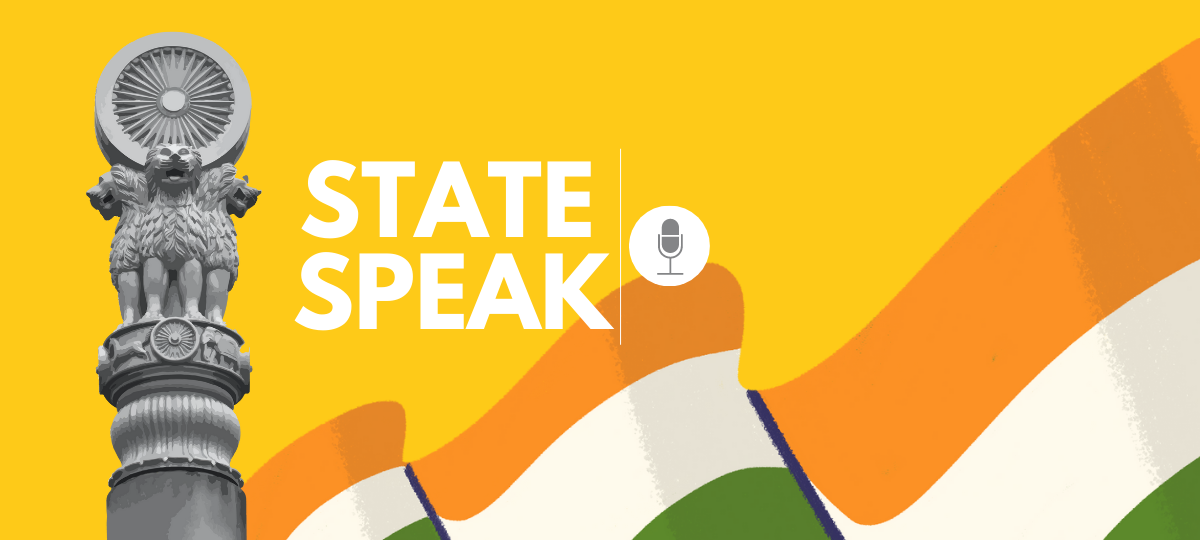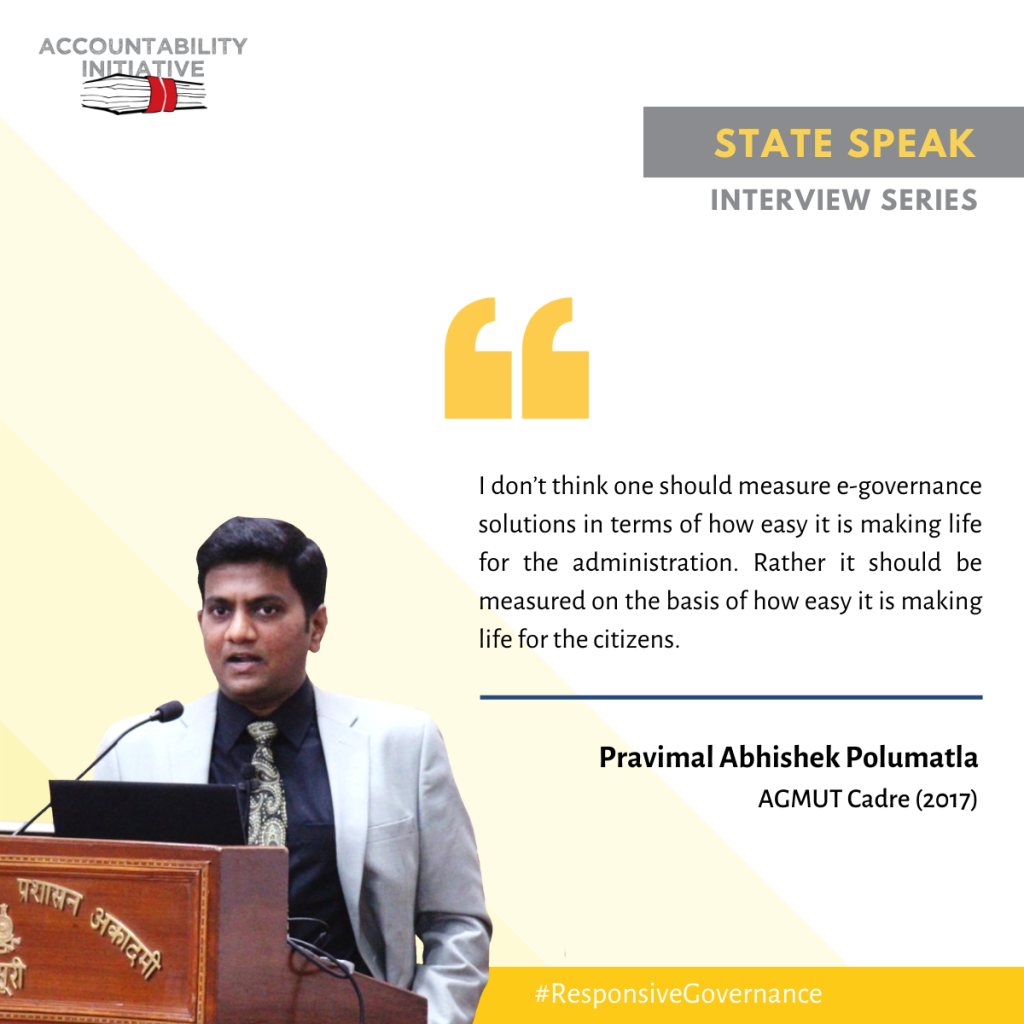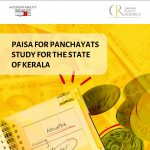
‘Now and in the Future, Skill Set of Policy Making & Implementation Using Evidence-based Framework is Needed’
30 July 2022
The bureaucracy is considered to be the steel framework that makes the country’s development aspirations a reality, but little is understood in the public about the people behind the scenes. State Speak is an exclusive interview series by the Accountability Initiative featuring insights from IAS officers posted in India’s districts and other public officials who have a vantage point on how the country is being governed, related challenges and best practices.
In this interview, we spoke with Pravimal Abhishek Polumatla who serves as a Deputy Commissioner and District Magistrate in East Kameng district of Arunachal Pradesh. He is an IAS officer from the AGMUT cadre of the 2017 batch. East Kameng is situated along India’s border with China.
Q. You are the highest-ranking administration officer in your district. You administer difficult and remote terrain. What are the challenges that you and your team face on a daily basis?
Pravimal Abhishek Polumatla: East Kameng is one of the backward regions of Arunachal Pradesh. One of the key reasons is the infrastructure. For example, as recent as 2020, the district did not even have 4G connectivity; most of the villages outside the district headquarters did not have any basic mobile connectivity. Even today, our existing road and power connectivity is quite vulnerable to disruptions caused by monsoons. So, now the question arises, what are the challenges in terms of administration when it comes to a place like this?
The key challenge is, ensuring access to public services in the remotest corners of the district. We are trying to overcome the challenges both through improvements in infrastructure as well as reaching out to the public. For example, we have this programme called Sarkaar Aap Ke Dwar, wherein we take almost all the Line Departments and do camps in remote villages of the district to ensure that the public services are brought to the doorstep of the citizens.
Secondly, we are also focussing on improving our infrastructure. Road connectivity significantly improved in the last five years. While some areas are still having connectivity issues, most of the district is now connected with all-weather roads. In the last two years, mobile connectivity improved significantly and around 60-70 per cent of the habitations have access to good mobile and internet connectivity.
A central government scheme for strengthening power lines is ongoing. Once it is done, I think all basic requirements like roads, mobile connectivity, and power connectivity will be in place. And I think that will remove certain bottlenecks in terms of public service delivery to the remotest areas.
Q. What has it been like during the COVID-19 pandemic?
Pravimal Abhishek Polumatla: Because of the infrastructure bottlenecks already mentioned, it was very difficult to impose lockdown and monitor it across the entire district. We have a small population of around 80,000 people, but villages are scattered across an area of more than 4,000 square kilometres. Therefore, reaching out to those villages was an extremely difficult task.
Ensuring COVID-19 vaccinations in such remote locations was a herculean task. In some cases, our staff carried vaccine loads on their heads through difficult terrain and reached remote villages to administer the COVID-19 vaccines. After all those efforts if people do not take up vaccines due to hesitancy, then it is not just a wastage of human effort but also wastage of precious vaccines doses.
We needed to make meticulous communication strategies to ensure that superstitions, blind beliefs, religious beliefs etc., are all addressed and public are mobilised for vaccine outreach sessions.
Also, while the pandemic affected almost every aspect of our life, education took a bad hit. The concept of online education did not work here due to a lack of internet facilities. Though we had offline modes of learning, the learning losses were significant. However, we are making all efforts to bridge those gaps.
Q. You have often spoken about community-level, ground-up development to achieve welfare objectives, particularly linked with women empowerment and making sure they are literate. You have also stressed on the need for adult literacy of women, and that they be economically active. Are there specific instances that led to this vision of yours?
Pravimal Abhishek Polumatla: I think that idea came from my field experience. Whenever I visited villages, I used to have very informal discussions with the people, because obviously, being a Deputy Commissioner (DC), they would see me from a position of authority. It is very difficult for people to open and really share what their personal views — how they see life, what their aspirations are, and what they expect from the administration.
My background in Anthropology (UPSC Optional) helped me in removing those hurdles and make proper conversations. I realised that there is huge gender imbalance at the field-level, though it is generally said that gender imbalance is relatively less in tribal societies. Men get to take all the decisions at the family-level, money is also under the control of the men. And through the experience of DAY-NRLM, I noticed that women have lot of determination to do something for their empowerment.
The other field experience was about my district’s agriculture potential. Most of the agriculture products come from outside the district, even basic things like potatoes, tomatoes, and eggs, despite have adequate resources for agriculture development in this region. I wondered why there was this demand-supply mismatch.
So that’s when I came up with an idea to orient women from Self Help Groups (SHGs) towards agriculture development of the district. To implement that idea, we converged nearly nine central and state government schemes, and created an Empowered Committee with five Line Departments at the district-level.
At the farm-level, we provided subsidies, farm machineries, efficient irrigation systems, along with extension services. At the SHG level we formed a cooperative society of more than 3,000 women which became the link between farmers and consumers. Using local funds, we created a community warehouse, a 40 metric ton cold storage and a dedicated local market.
A dedicated market ensured that competition was introduced into the market which was hitherto monopolised by a few middlemen who brought in all the supplies from neighbouring states. This market enabled several farmers to get good returns on their investments. And we saw agriculture produce coming from some of the most interior locations of the district!
This picked up quite well and the SHG women realised that they have a lot of potential to make a difference in their lives and their communities. They are motivated to work hard even with very small investments. Over time I realised that their pursuit is not merely financial independence but a sense of individual purpose and meaning in their lives.
Q. What is the relevance of e-governance for a district such as East Kameng?
Pravimal Abhishek Polumatla: Given the kind of network challenges that we have, it is difficult for us to deploy e-government solutions. With some improvements in the network availability in the recent past, we are experimenting with e-Governance solutions in the district headquarter region.
To begin with, we are making all out efforts to implement e-office in all district level offices to remove inefficiencies and time delays in physical movements of files. This is in line with the commitment of the Government of Arunachal Pradesh to make 2022 the ‘Year of e-Governance’.
The second step is to gradually introduce digital services at the government-citizen interface. We are currently implementing an ‘Ease of Doing Business Portal’ where trading licenses can be applied online. In all rural development schemes, like the MGNREGS, we are using mobile-based monitoring wherever network is permitting us to do so.
So, wherever technology is feasible for us, we are trying to experiment with the solutions, learn from the field and try and scale it up in a very gradual manner. This is because, as much as technology can ease the burden for us, I think one should look at it from the perspective of the citizens. I don’t think you should measure e-governance solutions in terms of how easy it is making life for the administration. Rather it should be measured on the basis of how easy it is making life for the citizens.
Q. India is celebrating the 75th year of independence. As per you, what will be the role of the IAS cadre going forward?
Pravimal Abhishek Polumatla: Historically, the institution of IAS was created was for maintaining law and order and collecting land revenue. After independence, the delivery of public services and enabling development has become the main agenda. I think, going forward, that will continue to be the main mandate or the scope of work for IAS officers; to make sure that whatever development programmes are there, they get effectively implemented at the grassroots-level.
Over the past seven decades, so many departments have mushroomed. For example, in our district, we have close to 40 departments working parallelly to implement different types of schemes or regulate different areas at the field-level. So, I think the most important skill set that IAS officers should have is leadership skills, to become that point of convergence for all these Line Departments, and to drive developmental initiatives in a very effective way at the field-level.
Secondly, the skill set of using evidence for policy-making and implementation is something that the IAS officers will be requiring in the future.
Implementation of development programmes, leadership, and an inclination to rely on evidence and take right decisions is very important.
Q. According to you, what are the governance challenges that India will be looking at in the coming 10 years?
Pravimal Abhishek Polumatla: Addressing inequalities in access to education, healthcare, regional imbalances in economic development, improving the land administration, ensuring ease of doing business, effective management of data for good governance and last but not least, building capacities to respond to climate change.

This interview has been edited for length and clarity.
The opinions expressed are personal and do not represent an institutional stand.
Transcription by Prateek Gupta.
Also read: We Need to Listen to the Communities We Work With: Interview with IAS Dr. Mittali Sethi





